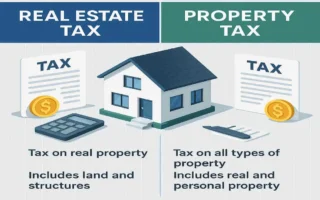So, you’re ready to rent your first apartment or home in New York City? That’s a big step—and a really exciting one. Whether you’re moving for school, work, or just for a change of pace, getting your own place in the city can feel like a dream come true.
But if you’ve already started browsing listings, you’ve probably noticed how fast things move and how many terms you’ve never heard before. Between broker fees, paperwork, and different neighborhoods, it’s easy to feel overwhelmed.
Don’t worry. This guide will walk you through what to expect when renting your first NYC apartment, so you don’t get stuck with surprises.
1. Don’t Navigate the NYC Rental Market Alone
Finding an apartment in New York isn’t like looking for one in most cities. Apartments come and go quickly. Listings might only be up for a day or two before they’re gone. If you’re doing it all on your own, it can get stressful fast.
That’s why a little guidance goes a long way. You don’t have to go through the process by yourself. Using the right tools or working with a platform that understands the NYC market can make things a lot smoother.
One service that many first-time renters turn to is Loftey. It’s a platform that helps you find verified listings and even negotiates rent or perks like a month of free rent. The best part? Loftey focuses on no-fee apartments, so you’re not stuck paying thousands just to secure a place. If you want a little backup while apartment hunting, they’re worth checking out.
2. Your Budget Needs Room for More Than Just Rent
Rent might be the biggest line in your budget, but it’s not the only one. When you move into an apartment in NYC, expect a few up-front costs. Most places require the first month’s rent, a security deposit, and sometimes even the last month’s rent. That adds up fast.
Then there are ongoing monthly expenses. Internet and electricity are usually separate from rent. Some buildings charge maintenance or amenity fees, especially if they have extras like a gym or rooftop access.
Also, many landlords require renters’ insurance. It’s not too expensive—usually under $15/month—but it’s another thing to budget for. Before you commit to an apartment, map out what your total monthly and up-front costs will look like.
3. Choose the Right Neighborhood for Your Lifestyle
It’s easy to get fixated on price and square footage, but don’t overlook the neighborhood. NYC is huge, and each area feels different. Some are lively and noisy; others are more relaxed. What matters most is finding a place that fits how you live.
For example, if you’re working in Midtown, you might want to stay close to avoid a long subway ride. If nightlife and food matter more to you, places like the East Village or Williamsburg might be a better fit.
Make a short list of things that are important to your routine, like a nearby park, grocery store, or quiet streets. If you can, visit the neighborhood at different times of day. That way, you’ll get a sense of what daily life really looks like there.
4. Learn the Rental Timeline—Because It Moves Fast
In many cities, people start apartment hunting months before they move. Not in New York. Most listings go live just 30–45 days before the move-in date. That’s a pretty tight window.
This means if you’re looking for a September 1st move-in, start your search around mid-July. If you start too early, most of what you see won’t be available when you need it.
Because listings move fast, it’s smart to have your documents ready ahead of time. That includes proof of income, a recent credit report, photo ID, and references. If you find a great apartment, you’ll want to apply on the spot. Waiting even a day can mean losing out.
5. Understand What You’re Signing
Before you sign anything, take time to understand your lease. A standard lease is usually 12 months long, but there are a few things to watch out for.
Some listings advertise “net effective rent.” That’s a marketing term. It usually means you’re getting a discount for part of the lease—like one free month—but your actual monthly payments are higher. Always ask what you’ll be paying each month, not just the net effective price.
Check whether the lease allows subletting. That’s helpful if you get a job in another city and want someone to take over your lease. Also, find out what happens if you break the lease early—some landlords charge a fee or keep your deposit.
6. Don’t Trust Every Listing You See
Unfortunately, NYC is known for shady apartment listings. Some are outdated. Some are scams. And some are just misleading.
Here’s what to watch for: listings that look way too cheap for the location, landlords who refuse to meet in person, or photos that seem too perfect and don’t show the full space. If the listing feels off, it probably is.
It’s safer to use verified platforms or licensed agents. If you’re touring in person, ask to see everything—including hallways, elevators, and outdoor areas. If you’re doing a virtual tour, make sure it’s live, not just a pre-recorded video.
7. Know the Difference Between Broker-Fee and No-Fee Listings
A broker’s fee in NYC is usually 12% to 15% of your annual rent. That can be thousands of dollars. Some listings are no-fee, which means the landlord is paying the broker, not you.
If you’re trying to avoid that extra cost, ask about the fee before setting up a tour. It’s also smart to filter for “no-fee” listings on rental websites. In some cases, a fee might be worth it, like if the broker helps you find something quickly or negotiates extras. But for first-time renters on a budget, skipping the fee is usually the way to go.
Renting your first apartment or home in NYC can feel like a lot. But once you know what to expect—and what to avoid—it gets easier. Don’t rush the process. Ask questions, trust your gut, and stick to what fits your budget and lifestyle. Plenty of people have done it before you, and they’ve figured it out. With a little planning and the right resources, you will too.
You may aslo read (why marina bay and bukit timah are ideal for buying a second property or home in singapore).




